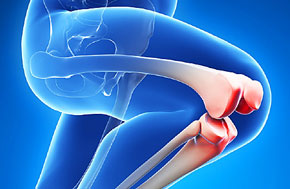Preoperative evaluations before joint replacement surgery are crucial to assess the patient’s overall health status, identify any potential risks or complications, and optimize conditions for a successful surgery and recovery.
These evaluations typically include:
- Medical History Review:
- The orthopedic surgeon reviews the patient’s medical history, including any past surgeries, medical conditions (such as diabetes, heart disease, or hypertension), allergies, and medications currently being taken. This helps identify any factors that may affect anesthesia, surgery, or recovery.
2. Physical Examination:
- A comprehensive physical examination is conducted to assess the joint’s condition, range of motion, strength, and any signs of infection or inflammation. The examination also evaluates the patient’s overall physical health, including cardiovascular and respiratory systems.
3. Imaging Studies:
- X-rays: These are typically performed to assess the severity of joint damage, bone quality, alignment issues, and to plan the surgical approach.
- MRI (Magnetic Resonance Imaging) or CT (Computed Tomography) scans: These may be ordered to get detailed images of the joint, especially useful for complex cases or when additional information is needed beyond X-rays.
4. Laboratory Tests:
- Blood tests: These include a complete blood count (CBC), blood chemistry (such as electrolytes, kidney function tests, liver function tests), and coagulation studies (to assess bleeding risk). These tests help evaluate overall health and detect any underlying medical conditions that need management before surgery.
- Urinalysis: Checks for signs of infection or kidney function abnormalities.
5. Cardiac Evaluation:
- Depending on the patient’s age, medical history, and risk factors, cardiac evaluation may include an electrocardiogram (ECG) to assess heart rhythm and function, and sometimes a stress test or echocardiogram to evaluate heart function under exertion.
6. Pulmonary Evaluation:
- Pulmonary function tests (PFTs) may be performed to assess lung function, especially in patients with a history of respiratory conditions like asthma or COPD (Chronic Obstructive Pulmonary Disease).
7. Dental Evaluation:
- Dental assessment is important as untreated dental infections can potentially lead to joint infections after surgery. Any necessary dental work should be completed before joint replacement surgery.
8. Nutritional Assessment:
- Malnutrition can affect healing and recovery after surgery. A nutritional assessment may be conducted to identify deficiencies and optimize nutritional status before surgery.
9. Psychosocial Assessment:
- Assessing mental health and social support systems is important to identify any potential barriers to recovery or emotional concerns that may impact the patient’s ability to cope with surgery and rehabilitation.
10. Anesthesia Consultation:
- An anesthesiologist evaluates the patient to determine the most appropriate anesthesia plan for the surgery, taking into account the patient’s medical history, allergies, and preferences.
11. Medication Adjustments:
- Depending on the patient’s medical conditions and current medications, adjustments may be made to manage chronic conditions optimally and to avoid interactions or complications during and after surgery.
Overall, these preoperative evaluations are essential to ensure that patients are well-prepared for joint replacement surgery, minimize risks, and maximize the likelihood of a successful outcome with a smooth recovery process. Each evaluation is tailored to the individual patient’s needs and health profile to provide personalized care and enhance overall surgical outcomes.






Comments